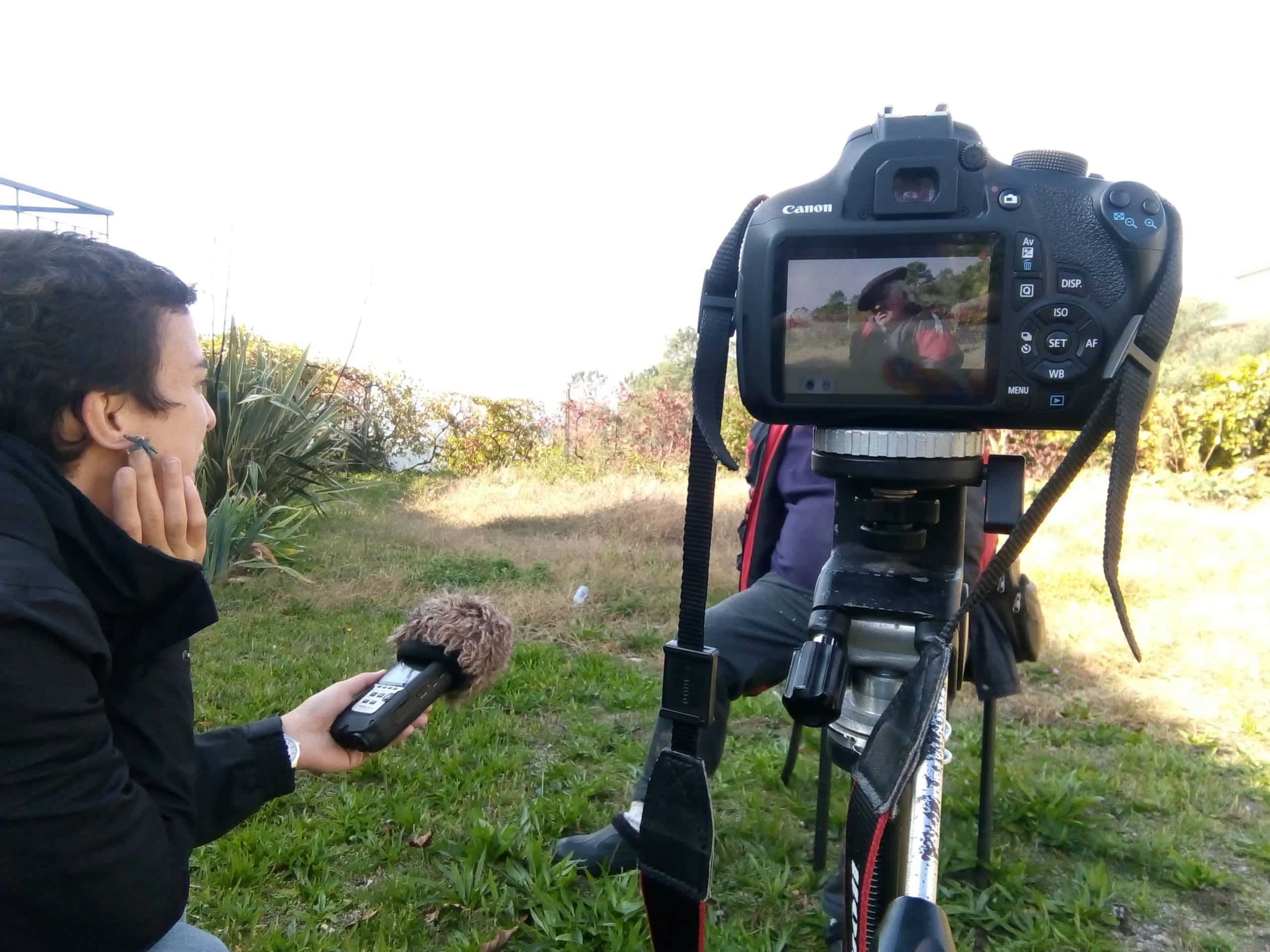A video-documentary to make visible affective relations towards community and nature
This video-documentary is the result of the project Marão Minha Serra, an action-research project aiming at promoting more sustainable human-nature relations (see facebook page). The project aimed at re-connecting people to each other and to their forested common land to re-build communities (human and more-than-human). For that, the project recorded residents telling stories about their common land and asked them to choose a meaningful place for their life telling the story behind it. Thus, this video is an affective map of the baldio of Ansiães, a map that tells the past and current resident’s affects towards their common land.
Our work is based on the assumption that communities based on care and reciprocity relations must be re-build if we want to promote any culture that regenerates the rural and fight against eucalyptus expansion. During last decades Portuguese native forests and agricultural land for family use, have been replaced by industrial cash crops eucalyptus plantations (Baptista, 2010; Serra, R., Barca, S. and Meira, 2015). Nowadays, eucalyptus plantations are the most spread forest species in Portugal, covering 26% of total forested area that feed paper pulp industries (Veiras and Soto, 2011). Yet the externalities are numerous and severe: an increased fire risk that threats lives and assets every year, high loss of biodiversity due to the homogenization of landscape and loss of cultural material and immaterial heritage attached to the ancient traditional landscape. This paradigm of nature exploitation curtains an understanding of nature as a storehouse of resources to be sold. Instead the project Marão Minha Serra wanted to promote an understanding of nature as the commons that contain all the resources supporting life in the planet, as well holding the memories, culture and meaning of communities (Bollier, 2016; Fournier, 2013; Lydon, 2003; Singh, 2018).
The context of the project is the baldio of Ansiães parish which is located at the foothills of Marão Mountains (Amarante municipality). In Portugal, baldio is the name given to those lands under a communal property regime (Law 158/2017.). Today 5% of Portuguese territory are baldios, they belong to people living at particular parishes. My research argues that baldios are platforms to experiment methodologies to reconnect people to each other and to nature. Here, I experimented with affective mapping (Rolnik, 2009), a methodology widely used in Brazil in urban context for citizen participation and place making ( see here an example).
References
Baptista, F.O., 2010. O Espaço Rural. Declínio da Agricultura. Celta Editora.
Bollier, D., 2016. Commoning as a Transformative Social Paradigm. The Next System Project.
Fournier, V., 2013. Commoning: on the social organisation of the commons. M@n@gement 4, 433–453. doi:10.3917/mana.164.0433
Lydon, M., 2003. Community Mapping The Recovery (and Discovery) of our Common Ground [1] Maeve Lydon 57, 1–32.
Rolnik, S., 2009. Cartografia sentimental, transposições contemporâneas do desejo. Sulina.
Serra, R., Barca, S. and Meira, T., 2015. Eucalyptus monoculture and common lands, Portugal [WWW Document]. Environ. Justice Atlas. URL https://ejatlas.org/print/eucalyptus-monoculture-and-common-lands-portugal
Singh, N.M., 2018. Becoming a Commoner: The Commons as Sites for Affective Socio-Nature Encounters and Co-Becomings. Ephemer. theory Polit. Organ. 17, 751–776.
Veiras, X., Soto, M.A., 2011. La conflictividad de las plantaciones de eucalipto en España (y Portugal) 96.

